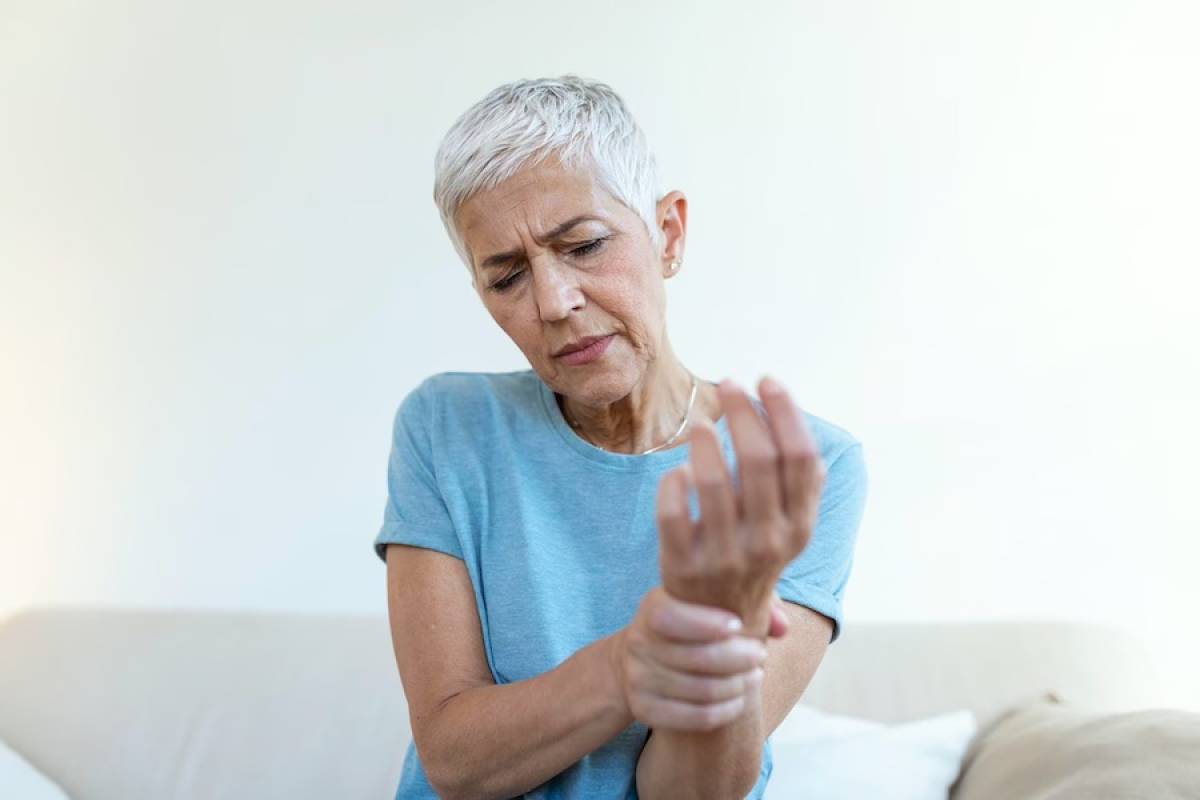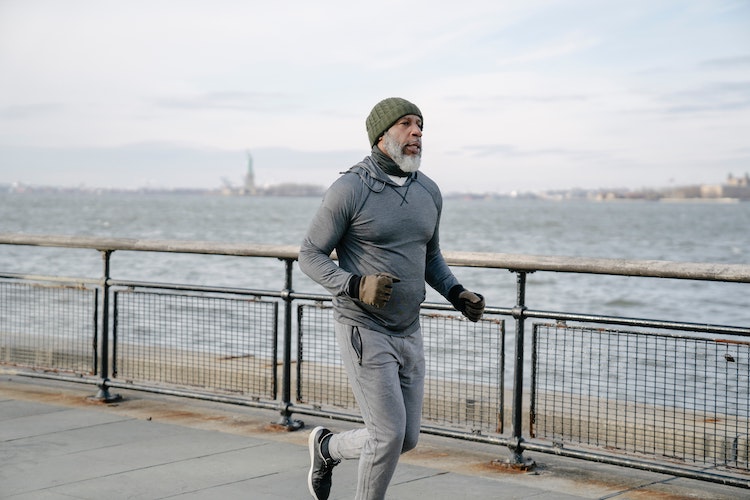4 Effective Ways to Strengthen Bones and Prevent Osteoporosis

Our bodies weaken as we age—the brain fades, eyesight blurs, and bones become more fragile. While certain lifestyles and medical conditions may accelerate and intensify these processes, taking steps to prevent them early on can keep them from severely impacting your life.
In this article, we'll discuss how to strengthen our bones and prevent osteoporosis from happening to you and your loved ones.
What is Osteoporosis?
Osteoporosis is a condition that weakens bones and decreases their density, making them more susceptible to fractures. It often develops without symptoms, so people might not be aware of having it until they get a fracture, hence the nickname "silent disease."
Bones aren't solid tissues. Similar to sponges, they have microscopic holes covering their surface, albeit with significantly smaller empty spaces between them. Osteoporosis, which means "porous bone," increases the size of these holes, weakening the bone structure and increasing the likelihood of fractures from the slightest bumps and sometimes even sneezes.
The elderly are more at risk of osteoporosis, especially those who didn't have a healthy lifestyle during their formative years. However, it may also occur among younger people. A low-activity lifestyle increases the chances of acquiring osteoporosis, along with undereating or a diet low in calcium and vitamin D.
Gender also plays a role, as women are more prone to getting the disease than men. Moreover, people with eating disorders, smoking or alcohol addiction, sedentary lifestyles, or a family history of the condition are also at risk of osteoporosis.
-
Risk factors
The Office of Disease Prevention and Health Promotion estimates that around 10 million people aged 50 and above have osteoporosis in the United States alone. As such, it's the most common among bone disorders worldwide. Its risk factors include age, gender, diet, and activity level.
-
Signs
As mentioned, osteoporosis has no particular symptoms, as people generally receive diagnoses only after breaking their hip, spine, or wrist. That said, height loss, drastic posture change, frequent fracturing, and back pain may indicate the presence of osteoporosis.
-
Treatment
While osteoporosis has no cure, people can slow its progression with significant lifestyle changes, such as a healthy diet and regular exercise.
Eliminating unhealthy habits can also help keep osteoporosis at bay. Plus, calcium and vitamin D supplements are great for maintaining healthy levels of these vitamins and minerals in the body to strengthen bones.
Effective Ways to Strengthen Bones and Prevent Osteoporosis

The saying goes, "prevention is better than a cure." It also applies to osteoporosis, but remember that bone loss has no cure. Fortunately, osteoporosis isn't inevitable through the proper preventative measures:
1. Eat healthy food
Eating food rich in calcium and vitamin D is an excellent way to build and maintain strong bones. Calcium helps keep bones, teeth, nerves, heart, and muscles functioning efficiently.
Since roughly 99% of the body's calcium is stored in bones, you need a diet high in calcium to guard against osteoporosis. Calcium-rich foods include tofu, dairy, almonds, and leafy greens.
Vitamin D is also crucial to maintain bone density and is responsible for helping the body absorb and retain calcium. It's common knowledge that sunlight triggers the skin to produce vitamin D, but the process' efficiency declines as the body ages.
So, complement sunlight by eating vitamin D-rich foods, such as salmon, tuna, beef liver, and egg yolk.
2. Exercise regularly
Exercise not only develops muscular and cardiovascular strength and endurance, but also helps reinforce your skeleton and prevent bone loss.
Since bones are living tissues similar to muscles, exercise also strengthens them. In fact, physically active people tend to possess peak bone density and strength more than those who aren't.
Weight-bearing exercises like hiking, running, and dancing help bones and muscles work against gravity. These activities stress your bones, making them work harder and become stronger.
Meanwhile, strength training, which includes bodyweight exercises and using weight machines, builds bones and increases muscle mass simultaneously.
3. Avoid smoking or drinking alcohol
The unhealthy habits of smoking and drinking alcohol interfere with the body's ability to absorb bone-building vitamins and minerals, weakening bones over time. For instance, smoking impedes the production of osteoblasts. These bone-producing cells control bone formation throughout life.
Smoking also undermines the body's ability to absorb calcium stored in the bones. Similarly, excessive alcohol consumption severely impacts calcium balance within the body by interfering with vitamin D production.
Heavy drinking also causes men to produce less testosterone and lower osteoblasts. Meanwhile, women may experience irregular menstrual cycles and low estrogen levels, increasing the risk of osteoporosis.
4. Take supplements and medications
Many people can't consume the ideal amount of calcium and vitamin D daily due to busy schedules or lack of funds to maintain a comprehensive diet. Fortunately, commercially available supplements can complement your food intake and provide the necessary vitamins and minerals to ensure bone strength.
Furthermore, people at a higher risk of osteoporosis may get medicine prescriptions to help prevent osteoporosis. These include bisphosphonates, calcitonin, and hormone replacements for men and women with low testosterone and estrogen levels, respectively.
In Conclusion
As the most common bone disorder, osteoporosis affects people globally and keeps them from doing many activities due to bone fragility. Some become bedridden, relying on professional services or their loved ones for support.
While osteoporosis is risky, you can prevent it from happening to you and your loved ones. Ensure a healthy lifestyle by maintaining a balanced diet, exercising regularly, and avoiding harmful habits to help prevent osteoporosis. In turn, you'll be able to enjoy a healthy and independent life as you age.













![9 Tips for Managing Your Online Writing Projects Efficiently [node:titile]](/sites/default/files/styles/video_thumbnail_bottom/public/open-book-laptop-online-writing-tips.jpeg?itok=rI4zR3a-)






![Can Pets Get Covid-19? How to Take Care of Your Pets During the Pandemic [node:title]](/sites/default/files/styles/video_thumbnail_bottom/public/dog-female-pet-owner-covid-care.jpg?itok=eLmbfN0W)